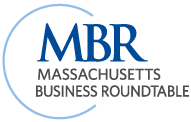Moving from Intention to Impact on DEI
Roundtable Guest Contributor(s): The Lazu Group and State Street
Roundtable members The Lazu Group and State Street are collaborating to provide a platform for conversations at State Street and among employees to promote racial and social justice in the workplace. As part of this series, the two organizations first explored the diversity, equity, and inclusion through the lens of Black history in February 2022 followed by a second forum on Women’s history in March 2022. The Roundtable invited The Lazu Group and State Street as guest contributors to its blog, reflecting on learnings from the forum in celebration of Black history.
Every February offers us the opportunity to reflect, honor and celebrate Black history in personal and professional settings. In recognition of this annual observance, Massachusetts Business Roundtable members, State Street and The Lazu Group, came together to explore Black history and the fundamental reasons why businesses continually miss the mark on Diversity, Equity and Inclusion (DEI).
The one-hour discussion, hosted by State Street’s Black Professionals’ Group featured a guided exploration led by Malia Lazu, CEO and founder of The Lazu Group, followed by a fireside chat with Lazu and State Street’s EVP, Chief Operating Officer, Lou Maiuri.
The topic discussed in greatest detail was the role corporations, specifically financial institutions, play in shifting longstanding racially biased practices both internally and externally. Maiuri spoke about his perspective on the ways senior leadership can aid in their organization’s evolution of equity and the importance of the C-Suite being fully supportive of employees. He highlighted the need for all initiatives to start from a core of understanding and his belief that only honest dialogue and listening can lead the way to getting DEI right.
Anchoring on The Lazu Group’s Intention to Impact Framework, the discussion explored how to move to action on DEI goals by embracing work that shifts culture and prioritizing the time as well as the resources required to do so. A diversity challenge is a cultural challenge, and a cultural change is hard, layered and doesn’t happen overnight. Key concepts discussed referred to the necessary shifts in an organization including:
- Approaching DEI as Intentional Practice – Intentional work centers all dialogue and action in the movement of equity through listening. Listening and forming your action plan in community with those whose work it’s impacting.
- The Value of Diversity goes beyond people – Diversity is good for business. There are a number of statistics around the economics of diversity from a corporate perspective with robust data showing that culturally and ethnically diverse teams are more profitable and the value on centering DEI extends to impact on closing the wage and racial gap thus improving the lives of those living in our communities.
Intentional Action at State Street
Currently State Street is a strong corporate voice on advancing equity systemically. Through the firm’s 10 Actions to Address Racism, a core set of guiding principles ranging from increasing board diversity to engaging in equitable asset stewardship processes, State Street has dedicated a significant amount of energy and capital into DEI commitments. One year after the 10 Actions were enacted, State Street announced a historic issuance of $850M senior subordinated bonds using an underwriting syndicate made up equally of banks and Black- and Latinx-owned companies.
State Street’s intentional demonstration through its inclusion of two minority-owned investment banks marks a new level of doing business with equity at the forefront. Additionally, State Street has made strides on its board diversity efforts which are currently at 25%. In 2021, it launched June’s racial equity and social justice 21-day challenge, a collection of short daily lessons, culminating with a
week of community service actions, in honor of Race Unity Day and Juneteenth. The small efforts – such as the 21-day education challenge- and larger commitments – such as the $850m bond deal with Black & Latinx businesses – combined begin to chip away at the harm caused by racial inequity here in the U.S and globally.
In 2020, we saw the rise of corporate activism as companies pledged support after the public killing of George Floyd yet corporate pledges will not end our race problems. The Lazu Group formed to help transform people, places, and companies to provide a more inclusive world and workforce by providing new skill sets, models and networks necessary to create lasting cultural change. Through these guided discussions, The Lazu Group hopes that we can spark the change that so many business leaders believe in and move DEI from a cost center to the core of corporate strategy resulting in more profitable businesses, better rates of employee retention, more effective recruitment, and successful engagement across race and gender. Our model of change works to discreetly uncover unconscious bias, identifying all the related systemic problems, implementing effective methods to evolve, and ultimately driving measurable business results.
Both State Street and The Lazu Group agree we need more than corporate statements, we need intentional action and companies willing to be bold as well as exemplary to repair the harms of the past. This present moment is calling on the entire business community to put forward innovative solutions to address the racial and gender wealth gap and to promote business practices that will create a better future for all.
RECENT POSTS
- Quarterly Policy Roundup: Q1 2024
- Black History Month: Reflections from Roundtable Staff
- Roundtable Members Discuss Impact of Business on Society
- Quarterly Policy Roundup: Q3 2023
- What We Heard This Summer in Our Roundtable Member Meetings
- Health Equity in Massachusetts and Why it Matters
- Growing MA’s Labor Market: Why Immigrants Should be Part of the Solution
- Massachusetts’ Future of Energy
- Roundtable Members Share Reflections on Workforce Dynamics
- Quarterly Policy Roundup: Q1 2023

